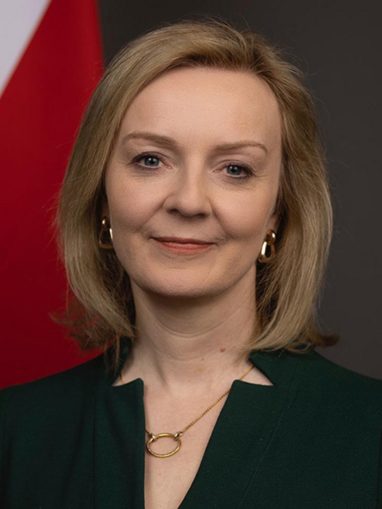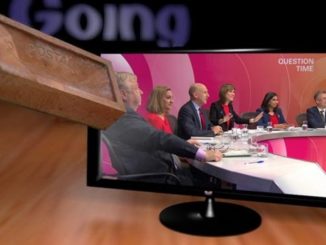
Years ago, the late Sir Robin Day scored such a direct hit on Mrs Thatcher’s Defence Secretary, John Nott, that he threw away his microphone and stormed off the set in mid interview after Sir Robin had put it to him that he was a “here today, gone tomorrow” minister. Yet, as ever, Sir Robin had a point. The achievements of ministers seldom last and are usually quickly forgotten but they have some fame at the time. I was reminded of the converse by a controversy over the memoirs of Liz Truss when she was accused of ruffling feathers by breaching the “Radcliffe guidelines” for ministerial memoirs and this brought back the name of someone who (in the UK at least, as I shall mention) was little known outside of legal and public administrative circles but who had had more long term influence than any number of ministers.
Cyril John Radcliffe, 1st Viscount Radcliffe (1899-1977), was for decades the “go to” man for any thorny administrative problems by governments of both persuasions. Indeed, the late Alan Watkins of the Observer would joke in latter years that no Lord Radcliffe was available to chair a committee of enquiry and to compile a doorstop report when needed if the government found itself in difficulty. The historian Peter Hennessy called him ”the Eternal Fireman”. I thought an essay on such an ultimate “inside man” would be useful but I found that even in cyberspace, he remains elusive. Certainly his wiki entry is disconcertingly thin and sparse and mentions little of his work other than in general terms.
Cyril Radcliffe was born in North Wales, the son of a regular army officer and educated at Haileybury. He was of an age to be conscripted in World War One but owing to poor eyesight joined the Labour Corps. Following demobilisation, he went up to Oxford and won “all the glittering prizes”, becoming a Fellow of All Souls College before reading for the Bar. He then had in the inter war years such a successful practice at the Chancery Bar specialising in Tax law that he took silk at the early age of 35 after only ten years’ call.
The Second World War brought him into government service and by 1941 he was Director General of the Ministry of Information under Brendan Bracken. He was knighted in 1944 but returned to legal practice at the close of hostilities.
In 1947 he was given an extraordinary assignment for a man who had previously never been abroad further than France .The Labour government of Clement Attlee requested him to travel to India to head the commissions drawing up the proposed partition boundaries between India and Pakistan. It was thought that his total lack of knowledge made him the ideal chairman, free from any previous bias. Strictly he found that he needed to chair two commissions , one for West Pakistan and the other for the former East Pakistan (now Bangladesh), and in each he had four co commissioners, two each from the Congress party and the Muslim League. Radcliffe found that they were deadlocked so that he had to decide everything himself in a few short weeks and without inspection of any of the country, He locked himself in his bungalow with the colonial records as were available and drew the lines on the map. India and Pakistan were declared independent two days before his report was published and given to the politicians and by then Radcliffe had started his journey home. Radcliffe took his maps and papers back to Britain with him where he subsequently burnt them and did not accept his fee. Partition caused the deaths of hundreds of thousands and the forced migration of millions so Radcliffe remains an infamous and controversial figure in the subcontinent to this day. He himself later said;
“I had no alternative, the time at my disposal was so short that I could not do a better job. Given the same period I would do the same thing. However if I had two or three years, I might have improved on what I did.”
On his return, Attlee’s government made him an arbitrator on a difficult compensation claim arising from the annexation of North Borneo and then followed by appointing him a Law Lord despite never having been a High Court or Court of Appeal judge (comically now, the one reservation by the Lord Chancellor’s Department was that his wife had previously been divorced), something extremely unusual and not repeated until Lord Sumption in recent years.
As a Law Lord , Radcliffe’s expertise as a tax specialist was reflected in lengthy judgements on revenue cases and he was asked to chair a joint parliamentary committee on Income Tax in 1951 and another into the working of monetary and credit markets in 1957. He came into the public eye again after the Macmillan government were beset with a string of scandals and he was asked to chair the vassal Tribunal after John Vassall , a homosexual civil servant, was found to have been blackmailed into passing secrets to the Soviet union and initial civil service enquiry into his relationship with his minister was declared a whitewash by the press. Radcliffe chaired the tribunal which held that Vassall had acted alone and unassisted. He antagonised Fleet Street for jailing two journalists from the Mail and Sketch for contempt of court for not revealing their sources. His 1962 report (described by Macmillan as “massive”) gave recommendations for the tightening up of security in the civil service generally and were adopted but Macmillan still suffered the Profumo affair the following year for which Lord Denning was brought in to report. Lord Radcliffe’s reward was the upgrade of his Law Lord’s life peerage to a hereditary Viscountcy.
The “Liz Truss” connection started with the aftermath of the publication of the diaries of the late Labour cabinet minister Richard Crossman. So much of which was the inspiration for the comedy “Yes, Minister”. Once the court cases had been settled , Lord Radcliffe was asked to report on the consequences generally on political memoirs and to make rules restricting anything “destructive of the confidential relationships between minister and minister” and required the agreement of the Cabinet Office of all wording prior to publication which could be damaging or destructive to national security, the UK’s international relations or to the confidentiality of government business. They remain in effect. Politicians constantly complain about them.
Lord Radcliffe died in 1977. He had married in 1939 but died childless so that his title died with him. He was the first Chancellor of Warwick University and remained so until he died. He had a sombre reputation and once admitted it was because all his friends had died in the First World war. He was not a politician but an extraordinary servant of the state.
© Bergen 2024



